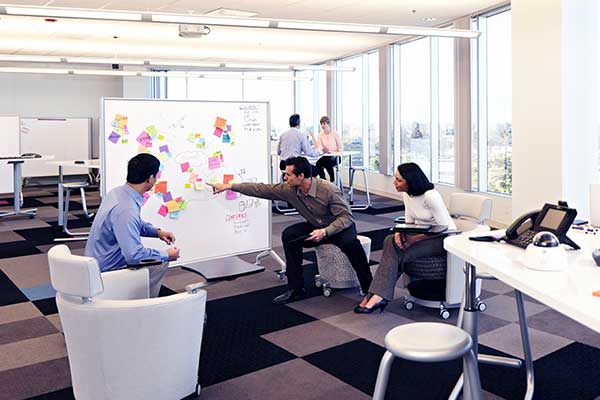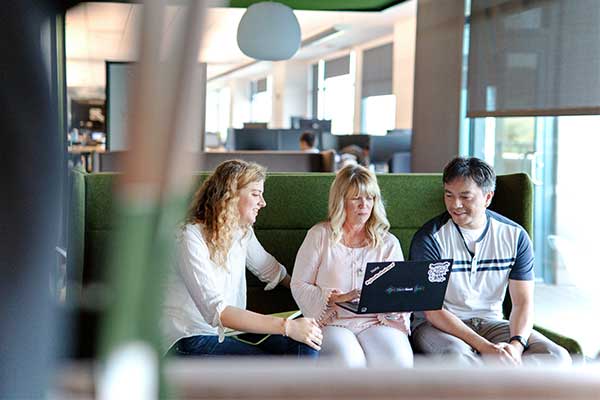In today’s (and tomorrow’s) market, most people can expect to have a career that spans decades. And as things like digital innovation and globalization make change the norm, you can also expect that you are going to need to grow, adapt, get a sense of what is coming and be ready for it – whatever career you pursue.
Key to your professional success in a world defined by change is your ability to learn and the ability to keep on learning.
Agile learners have an open mindset and are adaptable as well as quick. They experiment with new ideas and approaches, are open to feedback, and reflect on what they have learned on a systematic basis. Always on the lookout for new experiences and the opportunity to learn new things, they are not afraid to take risks and make mistakes – which, in turn, they convert back into learning experiences. Learning becomes habitual – a life-long exercise.
It is no coincidence that agile learners are highly sought after by today’s employers. What can you do to get the habit?
Five Ways to Always Be a Learner
Be Open to Feedback
Of course, it is always nice to have a word of praise from a boss or a colleague. But how often do you proactively ask for feedback or constructive criticism? Seeking out the input of others is an active way of broadening your mindset, seeing new approaches or perspectives and opening yourself up to learning. Remember, it’s important not to be defensive or guarded about what other people say. Look for feedback of all types – and from different people – as a way of opening up new ways of thinking about things.
Try out New Approaches
Sticking to the same process that you know works is often a useful approach. But it is an approach that can also blind you to new ideas, innovation, and different results. Why not ask yourself:
- How could I do this differently?
- What would someone else do in my position?
Holding onto an approach or methodology that has worked until now will keep you just that: here and now. But it will not necessarily take you further. Nor will it do much for your learning. Try to mix things up a bit. Experiment with different ways of doing things. Document the outcomes and assess what you have learned – and gained.
Meet New People
First two methods on this list, tie to your willingness to learn from other people. So why not make an effort to broaden your social and professional circles as much as possible? Get out of your comfort zone and seek out connections with people from different backgrounds or with different skill sets. Having a diverse network gives you access to diverse perspectives – and opportunities. So think about joining a group or starting an activity that takes you beyond your usual social or work environment.
Take Risks
Eleanor Roosevelt, wife of former US President Roosevelt, famously said: “Do something every day that scares you”. There is safety in your comfort zone perhaps, but unless you are willing to expose yourself to new experiences, environments, and outcomes, you are going to limit the opportunities to learn. Set yourself targets and goals. Whether it is mastering a new skill, trying out a new sport, visiting somewhere new – whatever it is, daring yourself to push your boundaries will get you out of a rut, while opening whole new possibilities.
Make time for reflection
Learning, of course, is also about analysis. When you try something new, experiment with a new approach, exchange with someone different or are open to feedback, make the time to reflect on what you have learnt. Get into the habit of asking yourself systematically:
- What did you discover?
- What did you differently this time?
- What you could do differently in the future?
Embedding strategies like these into the way that you work, socialize, and live can empower you to draw the learning from experiences itself. Develop a lifelong learning habit that will leave you better fulfilled and power your success.


![Career Skills for Techies [webinar series]](https://prelogin-test.netacad.com/sites/default/files/field/image/career_skills_for_techies-600x400.jpg)